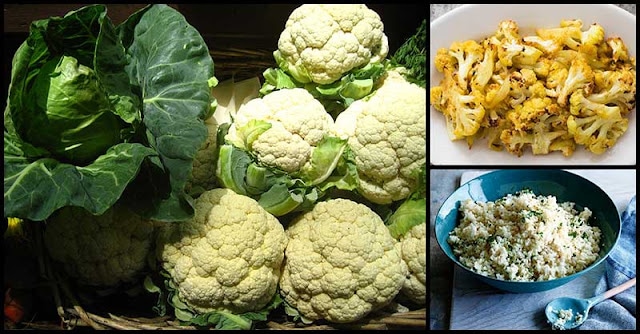Cauliflower is a nutrient-rich superfood. It is high in vitamins B, C, K and E, folate, fiber, carotenoids (antioxidants), and glucosinolates. Moreover, it also provides the body with vital minerals including calcium, magnesium, sodium, potassium, zinc, iron, and phosphorus. Studies revealed that it can help lower our risk of both heart disease and cancer which are two of the leading causes of death around the world.
Cauliflower and other cruciferous veggies contain substances that can add important nutrition to our diet. The extra vitamins it possesses can help reduce our risk of heart trouble. It has natural components that protect the bends and branches of our blood vessels which are most prone to inflammation. With regular consumption, cauliflower can help ensure proper blood circulation and functioning of the blood vessels. These effects are mainly attributed to its glucoraphanin and vitamin K. Glucoraphanin is converted into isothiocyanates that activate anti-inflammatory activities and also prevent the accumulation of lipids in the blood vessels thus aiding in the unobstructed flow of blood which in turn, reduces the risk of various cardiovascular problems. Moreover, in a study conducted, researchers have found that Indole-3-carbinol, found in abundance in cauliflower, contributes significantly towards a healthy heart. This is likely why, among women, a higher intake of cruciferous vegetables has been associated with a lower risk of hardening of the arteries.
Various studies have also revealed that cauliflower contains natural substances that can help disable cancer-causing substances and prevent cancer from growing and spreading in the body.
According to studies, cauliflower’s indole-3-carbinol possesses chemopreventive and anti-estrogen effects that help in hampering the growth of uterine cancer cells. Furthermore, in a study published in 2014 in The Journal of Nutrition, experts have found that brassica vegetables such as cauliflower helps in suppressing cell proliferation, especially in terms of breast cancer. Aside from these, supporting evidence from research has shown an inverse relationship between high intake of cruciferous veggies like cauliflower and the risks of cancer, heart diseases and death from any cause.
Enjoying Cauliflower
The most common ways of cooking cauliflower are steaming and broiling. But aside from this, we can also roast the vegetable with a small amount of olive oil, or use it in a stir-fry or mash it as a substitute for mashed potatoes. Also, try pulsing cauliflower in a food processor until it forms rice-size pieces, and enjoy it in place of white rice.









